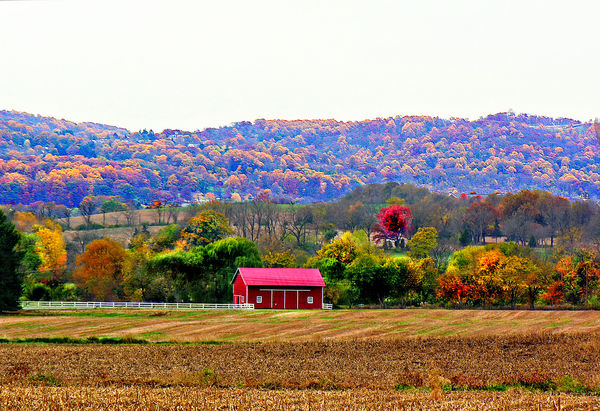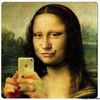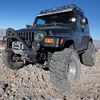Does The Camera Make The Photographer?
Jul 2, 2016 09:33:16 #
jradose wrote:
I will probably start a war with this post...but h... (show quote)
I think the diff is IQ and THAT is in the eyes of the beholder....
Jul 2, 2016 09:37:50 #
Jul 2, 2016 09:39:11 #
Szalajj
Loc: Salem, NH
BebuLamar wrote:
Ansel Adams didn't know about the exposure triangle I think his pictures are good don't you think?
You need to view the Ansel Adams topic currently listed on UHH, click through to view the video, and rethink your comnent.
His famous moon shot relied on his knowledge of light, vs. exposure settings!! He only had time for that one exposure before he lost the quality of light in that shot. He couldn't find his light meter, and time was critical to capture the light quality.
And, then he compensated the end result with a considerable amount of Post Processing.
So, he basically DID know about the exposure triangle, before it was even called that.
If you have never shot Black & White film, developed the negatives, and worked in a darkroom to print your resting shots, can you really have a true feeling for exposure, and exposure compensation is a question?
I'm speaking from years experience. I began shooting with film, over 50 years ago. I've advanced from instamatics, through 35mm cameras, into digital cameras. And yes over the years I did gain darkroom experience, which I believe has helped me to develop my eye for composition, exposure, and exposure composition. I still have more to learn about exposure compensation, but that will come with more experience with DSLR Cameras, which only began 16 months ago.
I have become very critical of my own work, as a result of my past experience. I'm often not happy with my resulting shots when I review them after after a day out shooting. I know that I should be getting better quality results with my years of photography experience. What frustrates me the most, is not being able to look at my LCD screen in bright daylight. I need to design or buy something that will reduce the glare on that screen. I've even considered a black cloth to cover the top of the camera and over my shoulders, similar to what the photographers of days gone by did.
From my experience, IF you have an eye for composition and exposure, THEN the equipment DOES matter. You need to start with a shot that's well composed and is in relatively sharp focus, before you begin post processing. So, your choice of equipment, AND your experience do come into play towards obtaining that clear, sharp photograph.
But, if someone is only taking snapshots, not high quality photographs, then the equipment might not matter as much.
Jul 2, 2016 09:41:31 #
Jul 2, 2016 09:42:48 #
rmorrison1116 wrote:
I don't believe its an issue of better equipment m... (show quote)
I my opinion both will if there in the right hands. And that's my five cents!
Jul 2, 2016 09:44:25 #
Fotomacher wrote:
I have a number of really good fountain pens. 14K and 18K gold nibs and really comfortable barrels. I bought some ink made by J. Herbin that is free flowing and vibrant. And then I sat down to write some amazing literature. All my friends said what I wrote was crap. Now I am looking for some better pens........
Best response - Ever!!
Jul 2, 2016 09:46:10 #
Bear2
Loc: Southeast,, MI
lwiley wrote:
There is a quote that is somewhat attributed one of the Wright Brothers, of aviation fame, that may be applicable to this question; "It is not important to have equipment with all of the latest bells and whistles, it is important to know how to use the equipment you have well!"
Just my two cents.
Just my two cents.
Ditto! And now we have $.04.
Jul 2, 2016 10:00:07 #
First off, I've never heard any photographer say, "If I had a better camera".
I've heard people who use cameras to take pictures say that, though. Photographers know what it takes to make a photograph and can generally use just about anything to make one. We've become to accustomed to seeing photos on the web, where cell phones can produce a usable image. However, try making a 16x20 print from a cell phone picture. Photographers have studied what it takes and usually select equipment of necessary quality and capability to accomplish their end goals.
IMHO, try making a large, quality print from a cheap camera, for instance, a Hawkeye was used as an example.
--Bob
I've heard people who use cameras to take pictures say that, though. Photographers know what it takes to make a photograph and can generally use just about anything to make one. We've become to accustomed to seeing photos on the web, where cell phones can produce a usable image. However, try making a 16x20 print from a cell phone picture. Photographers have studied what it takes and usually select equipment of necessary quality and capability to accomplish their end goals.
IMHO, try making a large, quality print from a cheap camera, for instance, a Hawkeye was used as an example.
--Bob
jradose wrote:
I will probably start a war with this post...but h... (show quote)
Jul 2, 2016 10:07:23 #
I've always been a technical person with an artistic bent...or maybe and artistic person with a technical bent. My belief is that the best composition may be wasted if the photographer has poor equipment and/or a lack of technical skills with it. On the other hand, someone who's mastered a great piece of equipment will also be unable to produce a good work of art if they can't compose a decent picture. The beauty of photography is that it's a marriage of technology and art; the photographer must be artistically creative yet have technical skill with good equipment to produce a good product. That being said, a great picture may be had with mediocre equipment but the odds of obtaining a better shot go up with better equipment.
Jul 2, 2016 10:29:04 #
No!!
Although you may think otherwise when reading UHH.
Put a top range camera in the hands of a crap photographer and you will still see crap photographs - posiibly at better resolution and IQ but still crap.
Put any camera in the hands of a good photographer and you will see good photographs even if the IQ isn't up to the usual standard.
This is evident when you see photo competitions where pictures taken with a more basic camera have beaten some top of the range cameras.
Look on Youtube at the pro challenge - where a pro is given a cheap camera and told to go out and get some good images, they always manage to succeed.
But of course - human nature being what it is - it is not the individuals fault they have produced rubish pictures , it is the equipment, the processing, the system, anything but the individual.
Although you may think otherwise when reading UHH.
Put a top range camera in the hands of a crap photographer and you will still see crap photographs - posiibly at better resolution and IQ but still crap.
Put any camera in the hands of a good photographer and you will see good photographs even if the IQ isn't up to the usual standard.
This is evident when you see photo competitions where pictures taken with a more basic camera have beaten some top of the range cameras.
Look on Youtube at the pro challenge - where a pro is given a cheap camera and told to go out and get some good images, they always manage to succeed.
But of course - human nature being what it is - it is not the individuals fault they have produced rubish pictures , it is the equipment, the processing, the system, anything but the individual.
Jul 2, 2016 10:52:03 #
I will agree .. One example is a regular here .."REGIS" great equip .. Great pics ... Great photographer ...
Jul 2, 2016 10:54:34 #
So much depends on the photographer ( not snap shooter) and his relationship with his camera. Knowing the limitations as well as the optimum settings for a particular photograph leads to better pictures. I starting out shooting with a Koday Pony where you ha to set aperture, shutter speed and distance, look through a tiny, blurry window and hope you got it right...which you did not know until the negatives were developed and the photographs printed. In college I had a 35mm Konica Reflex with an external meter...which produced better photos than some of the expensive Nikons other photography students were using. The professor said it was most likely due to me knowing what to change in the settings rather than letting the camera do it all automatically. I believe many people today think they are a photographer because they have an expensive digital camera in their hands.
I do about ten Arts & Crafts festivals per year and often repeat visitors have brought me their photographs to look and and if time permitted "critique" their shots. One guy over the course of three years bought the same camera, but did not put a good Nikon lens on it; year two his pics were still dismal...he was printing with a three-color ink jet printer(and black was not one) ...so, he went out and bought the same Photo-printer I was using. In year three his wife begged me not to tell him about anything else I was using...his photos were still nothing more than snap shots...you know, tilting horizons, poor composition, etc. When he asked why his shots were not as good as mine, his wife said, "Because he is a photographer, and you are not."
To add something else to this conversation, often people - I shall call them uneducated versus idiots - will come into my booth and same something like, "Oh sure, you have good photos because you have an expensive photo. I always bring their attention to one photo I always have framed and hanging up...and one I sell quite a few of. I point to it and say, "Like this photo, right?" (Attached) Typically, they say, "yeah, just what I mean." Then I end their idiocy when I tell them the shot was taken with a Nikon 3.2 Megapixel point and shoot, which I bought in 2006 to see if I would like to switch all my 35mm equipment over to digital. Like others have stated, a good photographer can get a good photograph with any camera they use. Sure, if the lens is not a quality piece of glass, then something will suffer, but the essence of a good photograph will live on.
I do about ten Arts & Crafts festivals per year and often repeat visitors have brought me their photographs to look and and if time permitted "critique" their shots. One guy over the course of three years bought the same camera, but did not put a good Nikon lens on it; year two his pics were still dismal...he was printing with a three-color ink jet printer(and black was not one) ...so, he went out and bought the same Photo-printer I was using. In year three his wife begged me not to tell him about anything else I was using...his photos were still nothing more than snap shots...you know, tilting horizons, poor composition, etc. When he asked why his shots were not as good as mine, his wife said, "Because he is a photographer, and you are not."
To add something else to this conversation, often people - I shall call them uneducated versus idiots - will come into my booth and same something like, "Oh sure, you have good photos because you have an expensive photo. I always bring their attention to one photo I always have framed and hanging up...and one I sell quite a few of. I point to it and say, "Like this photo, right?" (Attached) Typically, they say, "yeah, just what I mean." Then I end their idiocy when I tell them the shot was taken with a Nikon 3.2 Megapixel point and shoot, which I bought in 2006 to see if I would like to switch all my 35mm equipment over to digital. Like others have stated, a good photographer can get a good photograph with any camera they use. Sure, if the lens is not a quality piece of glass, then something will suffer, but the essence of a good photograph will live on.

Jul 2, 2016 10:55:30 #
jradose wrote:
I will probably start a war with this post...but h... (show quote)
I don't care how good your camera is, it won't make you into a photographer. I know a woman that has a Canon 1DX, 1DX Mark II, every lens imaginal that I think I'd like but can't afford and she can't shoot to save her life. We met at the Canon Experience Center and went on a field trip to Laguna Beach to shoot 3 models that Canon hired for us to play with. The models came from an agency and knew how to pose, but would also pose any way we like. I posed on at sunset with her back to the sun and I was using a fill flash dragging my shutter. The woman that has all that equipment couldn't even begin to comprehend what dragging the shutter was and how to make it happen. She kept looking at the back of my camera instead of taking pictures. I think she must have won the lottery or something because she has the best of everything. I know, she's trying, and she's gotta learn somehow, but it ticks me off that she's looking at my camera instead of just filing the term "dragging shutter" away in her brain and then finding out how later. I guess she's a lot like my sister that bought the best of the best film camera stuff, dark room stuff, and didn't know how to use any of it and had me sell it all on eBay.
Jul 2, 2016 10:59:44 #
Szalajj wrote:
You need to view the Ansel Adams topic currently l... (show quote)
I too began shooting over 50 years ago and started (thanks to my Grandfather) with a Kodak 35 (35mm film camera) a Weston Light meter and a grandfather that was a professional photographer as a teacher. I agree that darkroom experience really pushes the photographer to understand all aspects of the shot he/she is about to commit to film (or digitally). I also think that being a digital photographer now has kind of made me a lazier photographer because I can get a "preview/postview?/ of the image that camera took and it costs little or nothing to take a second, third or forth shot of that image.(assuming the subject stays put for the shot). In the film days, you didn't really worry about ISO (ASA) once you loaded your film (yes of course you had to make a decision of slide or negative, b&W or color, ASA 20, 100, 200, 400, etc.) but that was a roll of film and once you selected your film, you used it to the end. So, it wasn't unusual for an entire shoot to be made with one type of film (unless the photographer had multiple cameras loaded with different speeds and types of film). You went to a football game loaded with multiple rolls of tri-X ASA400 film and then you either shot it that way of maybe you decided to "push" the film to a higher ASA though processing. Now, you just change the ISO on the camera or set the ISO to "Auto" and let the camera decide. I think this is one of the reasons that I like Lightroom so much is it gives me the ability to sit down and actually work an image on the computer sort of like it was done in the darkroom (editing, cropping, dodging, etc.) each image.
Jul 2, 2016 11:00:08 #
If you want to reply, then register here. Registration is free and your account is created instantly, so you can post right away.











